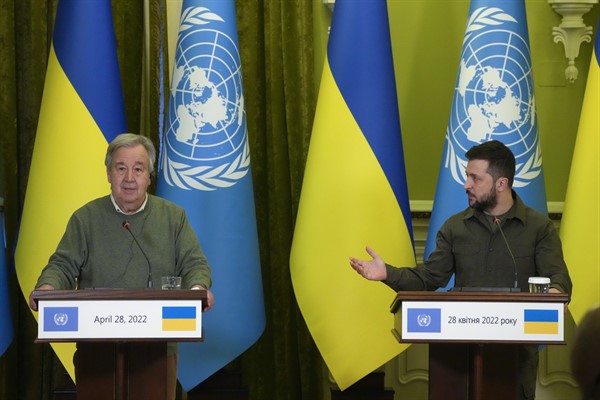Russia’s invasion of Ukraine and its conduct in the course of the war presents a serious threat not only to the Ukrainian state and its population, but to the humanitarian principles and restraints that are the bedrock of the modern international system. There are serious risks that Russia’s war will weaken international institutions and norms in ways that reduce their ability to maintain peace, prevent civilian harm and deal with collective challenges around peace and security going forward. However, this need not be so. It is still possible for the international system to come out of this crisis not only intact, but stronger than it was before the war in Ukraine.
Russia’s invasion of Ukraine will undoubtedly have negative repercussions for the international system of conflict regulation that has held fast since 1945. A permanent member of the United Nations Security Council—one of the five states with a primary responsibility for maintaining and enforcing the principles of the U.N. Charter—has flagrantly violated one of the charter’s core tenets. In doing so, Russia has undercut the bedrock principle that states should refrain from the use of force and acts of aggression and has shaken the credibility of the Security Council as the body charged with overseeing such principles.
Russia’s conduct is also likely to undermine respect for the core principles of international humanitarian law. While there has been substantial attention to pursuing war crimes allegations against Russia or its forces through international tribunals, national courts and other legal mechanisms, this sort of formal adjudication generally only happens in the minority of cases, and may not happen at all in Russia’s case.

